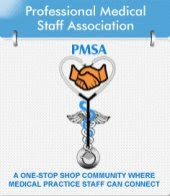When someone calls the practice, who is often the first person that they make contact with? Is it the front desk? The front desk has the opportunity to be the major customer service representative of the practice. How they handle callers and patients in person affects the tone of the contact with the practice. If the caller is treated rudely then this leaves a bad impression on the caller. Think of it like this, when you go out to eat and the restaurant’s host or hostess doesn’t not provide you with a friendly greeting and information on when you can expect to be seated, what impression does that make? What does that make you think about the food? Most people will answer that the food is of poor quality or that this is a bad place. That may or may not be true, but it is the perception that the customer takes away. Your callers are customers, what are they taking away from your contact with them? Would they give the practice a good rating or not? Ask yourself what was the best service that you ever had as a patient or customer, are you matching that type of service? Why or why not? What can you do to improve it?
A major part of phone etiquette is actually listening to the caller. Learning to listen is an art that most people never really learn. It is something that we do everyday and yet we take it for granted, but how much are we really listening. True listening is an activity that takes skills and effort. Just because you can hear what someone is saying doesn’t mean that you really hear them. When you hear without listening you are no longer thinking about what is being said to you. You can learn more by learning to listen. A few keys are listed for in person and phone calls, but there are many good books on the subject that are available.
1. Focus your attention on the speaker and try not to interrupt or assume information before it is said..
2. Stop doing anything that does not directly relate to the subject.
3. Think about what you know about the subject being discussed.
4. Avoid listening to other issues or thinking about them.
5. Look at the speaker-try to maintain good eye contact
6. Mirror their mannerisms, but don’t go crazy. If they lean forward you should lean forward.
7. Set aside your feelings for the time being-this is a business. Later you can examine your emotions and see how you feel.
8. Plan to learn from the speaker, you may not always agree but you can learn from everyone.
9. Be aware of your non-verbal communications. Sighing and rolling the eyes is never a good one.
10. Lean forward and act interested in the speaker.
These are just a few hints on how to act interested and becoming a good listener.
One of the greatest skills you can have is good phone etiquette. Much of your day will be spent on the phone and how you handle the phone can really step you apart. Next week we will give some additional tips on the phone.
Source: PMSA Front Desk Training Module One
Friday, May 15, 2009
Subscribe to:
Post Comments (Atom)

3 comments:
That is the reason why companies acquire their 1800 Number. Communication through telephone is very important especially to businesses.
True listening is an activity that takes skills and effort. Just because you can hear what someone is saying doesn’t mean that you really hear them. When you hear without listening you are no longer thinking about what is being said to you. You can learn more by learning to listen. A few keys are listed for in person and phone calls, but there are many good books on the subject that are available. mypbx
Please share more like that. 0800 mobile numbers
Post a Comment